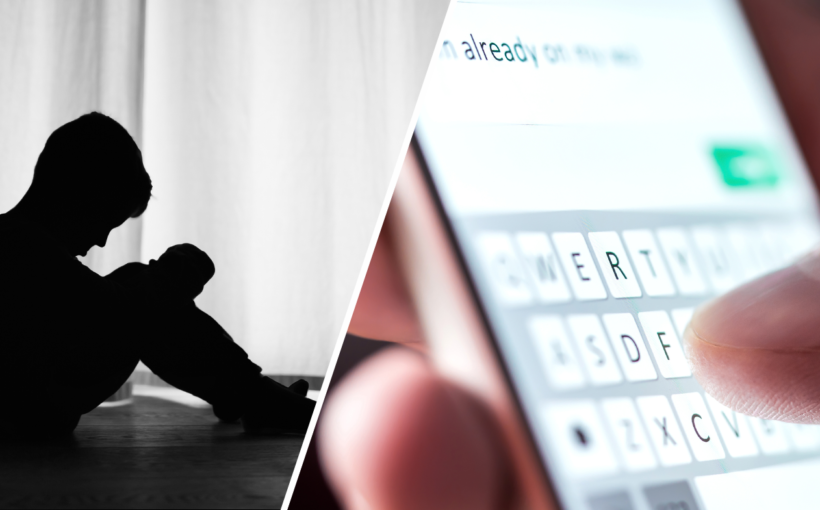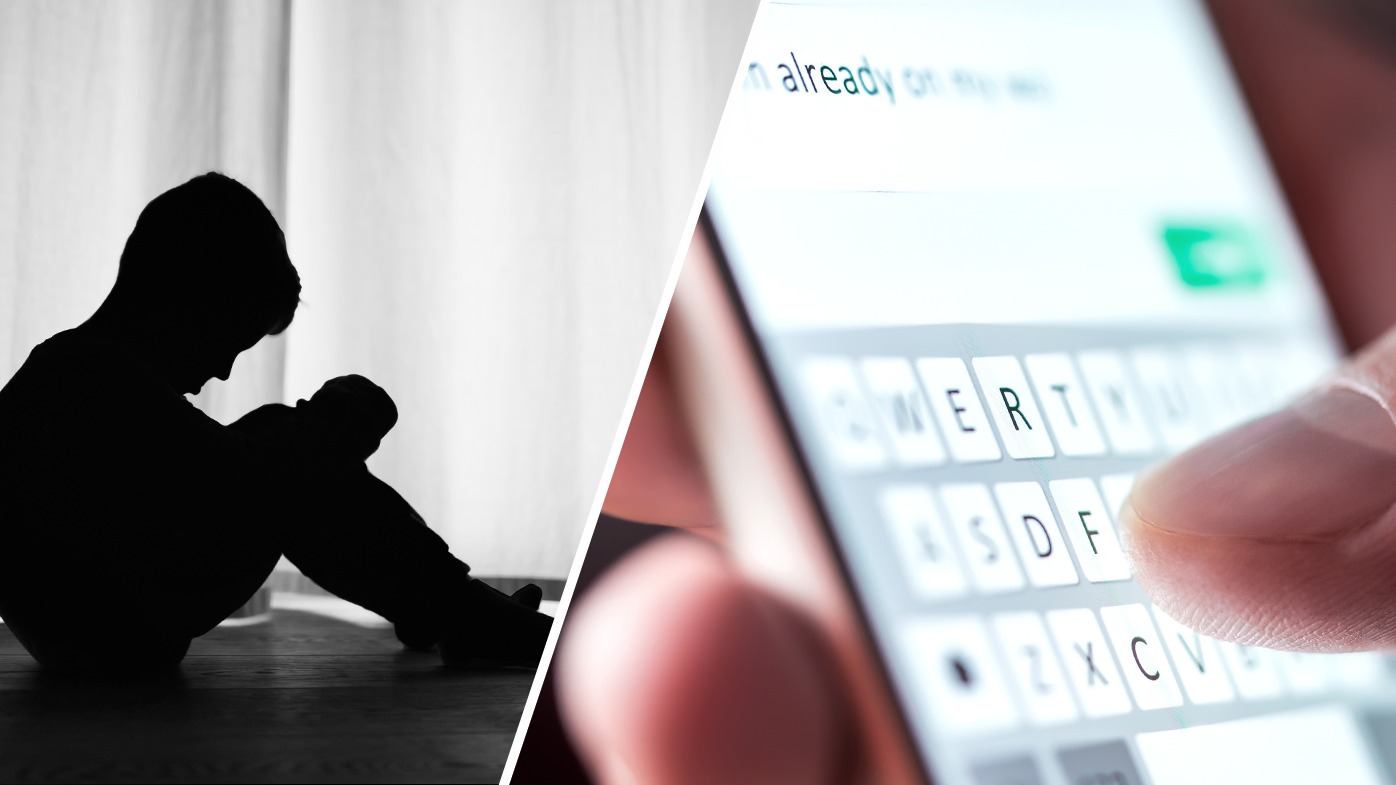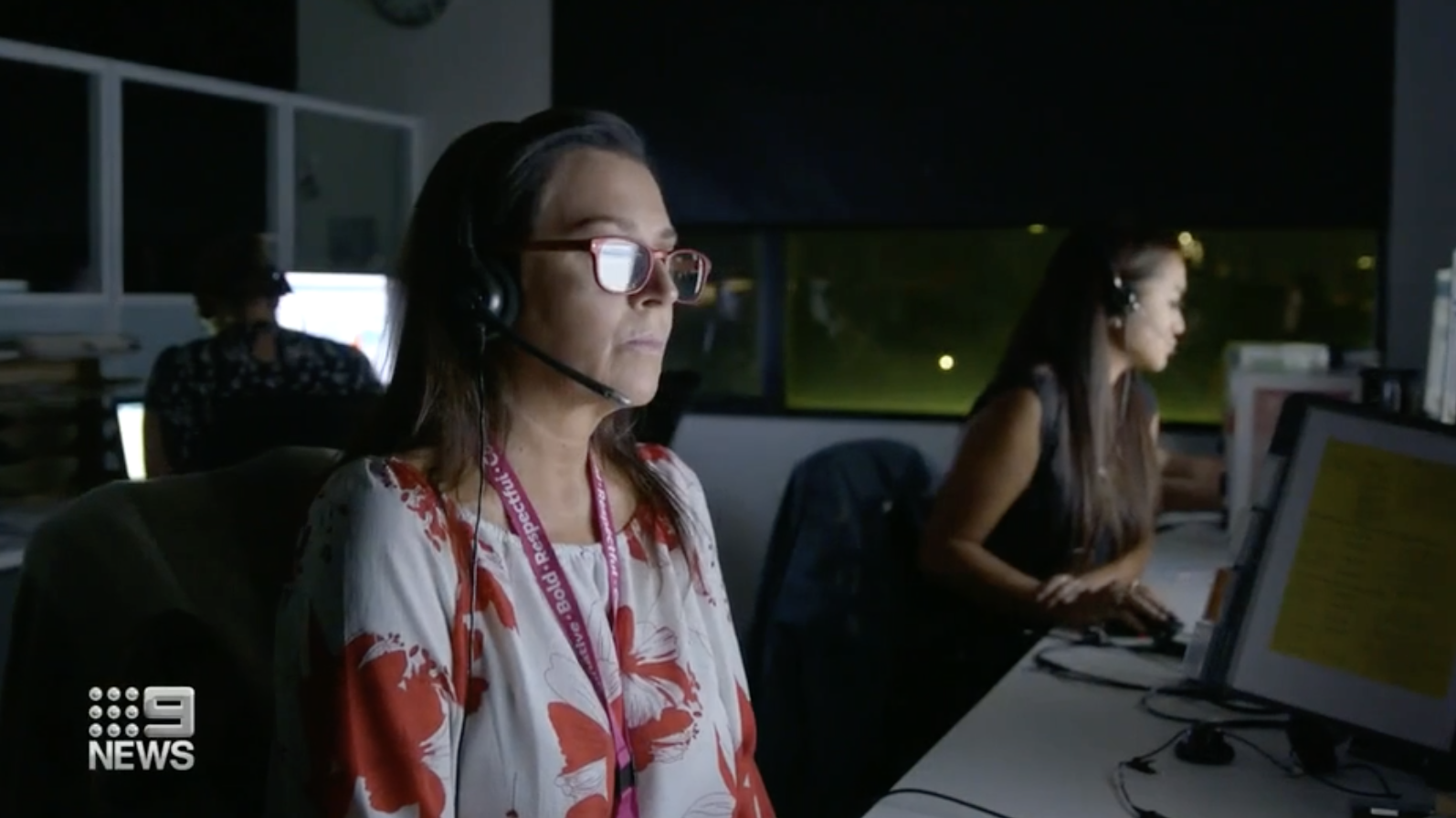Being a Lifeline volunteer is a confronting, heartbreaking job at the best of times.
Trying to attentively listen to people's cries for help while making sure not to overstep personal boundaries – it's a role that can be extremely fulfilling, but it comes at a hefty price.
Watching the nation's mental health epidemic unravel before your very eyes, while physically being unable to prevent deaths, is an unimaginable challenge that 55-year-old volunteer Text Crisis Supporter Sonny Tuapola knows all too well.
READ MORE: How young NSW gambler hit rock bottom but bounced back
Though through time he's learned to switch-off once a shift is done, emotions can't always be blocked, especially when it comes to the escalating emergency among Australia's children, which Tuapola says is undoubtably "the hardest part".
At around 9am each day, when parents set off to work and kids are left alone – either at home, school or anywhere else in between – traffic to the text line surges.
"They're texting from their bedrooms, homes, bathrooms, the back of the buildings, everywhere," Tuapola tells 9News.com.au.
"I do the 6am to 10am shift, and you know, you get adults texting in on the way to work, pulling over their cars on the side of the road.
"But towards 9 o'clock, something else happens, you get all the school kids.
"And there's a lot – a lot of kids calling.
"That's the hardest part."
Do you have a story? Contact reporter on jattanasio@nine.com.au
Tuapola explains that there's no specific age group that seek more help than others, and tragically, even calls from infants as young as five reach out for help.
"It's different ages and all different demographics and that sort of stuff," he said.
"And, you know, we do have a kids helpline, especially tailored for kids from five to 15.
"But I regularly speak to children aged 14, 15 and 16."
In fact, not one single shift goes by where Tuapola doesn't take a text or call from a child – a "tough" experience that's left a deep, lasting impact on him.
"I'm not going to lie..the first three months I found things were sitting with me after I was speaking to some of the help seekers calling through," he said.
"But I've gradually learned to be more resilient and I've learned to be strong, but it is tough.
READ MORE: Experts warn cost of living distress may cause rise in suicide rate
"I need to be in the right frame of mind so I can go back and support my family, otherwise I couldn't do what I do voluntarily.
"I try to help as much as I can, I'll be there with them and I'll stick with them but at the end of the day, it's obviously up to them what they do and we can only try to arm them with knowledge."
Tuapola – whose been working with Lifeline since July 2021 – said the role is all about forming a connection with the person on the other line, not providing advice or revealing any personal details, even though he sometimes may want to.
He said mental health battles don't discriminate and, though recurring obstacles – such as the COVID-19 pandemic and cost of living crisis – exacerbate certain issues, the problem is "right across the spectrum".
Sign up here to receive our daily newsletters and breaking news alerts, sent straight to your inbox.
"Self-isolation, working from from home, people not having balconies and being confined – that's been a big topic," he said.
"The Northern Rivers floods that happened a few months ago up in Lismore has been another big one," he said.
"The Ukraine war."
Most recently, the exorbitant cost of living has also had a major impact on callers' lives.
"I've got people that are about to get thrown out of their homes," Tuapola said.
"They can't paid the rent, they don't know what to do."
Financial pressures are so bad across the country right now that January actually saw record-breaking demand for Lifeline's resources.
READ MORE: The secret toll of our escalating natural disasters
Data released this month revealed that some 26,000 searches for support were made throughout the month of January alone, the highest-ever to date.
Referral searches by Lifeline's counsellors specifically relating to financial issues and homelessness also doubled between August 2022 and January 2023.
"Not all calls, all interactions, are about suicide though," Tuapola said.
"Sometimes, people just want to talk to someone.
"Mental health is a hidden, silent killer and we need to be talking about it more.
"Because when someone doesn't talk about it? Well, that's the person we need to look out for."
Today Lifeline Australia celebrates 60 years helping Aussies through tough times.
The organisation was first founded in Sydney on this day in 1963 by Reverend Dr Sir Alan Walker OBE, after he took a call from a distressed man who later died by suicide.
Vowing never to isolation or lack of support cause of more deaths, Walker launched what later became the organisation's 24/7 telephone crisis line, 13 11 14.
Lifeline receives more than two-and-a-half million contacts for help each year within 41 centres around the nation.
Crisis support is available from Lifeline on 13 11 14.
Support is available from Beyond Blue on 1300 22 4636.






